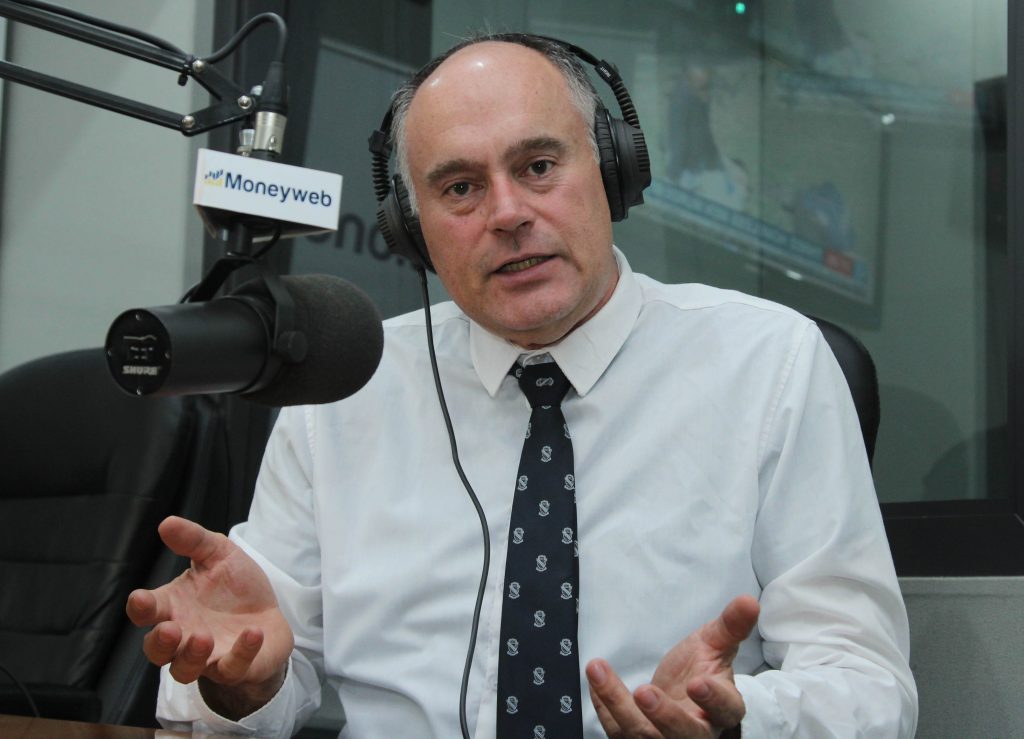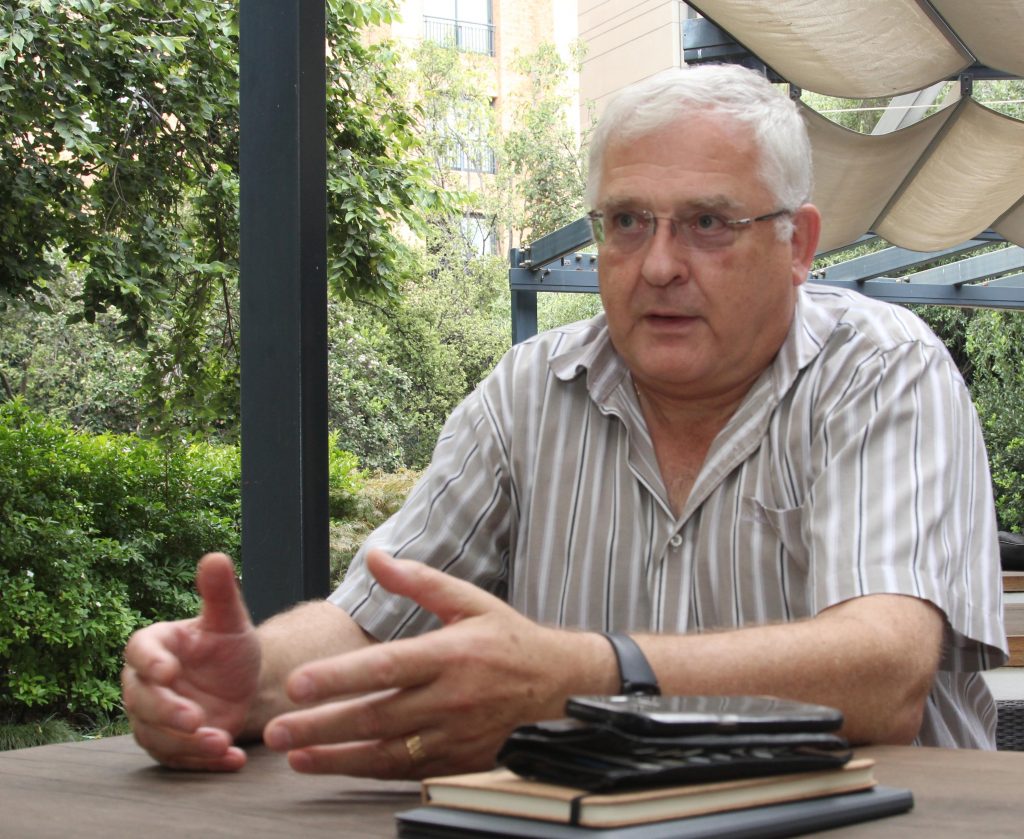You can also listen to this podcast on iono.fm here.
JEREMY MAGGS: Millions of South Africans, you might be one of them, have already been auto-assessed by the South African Revenue Service [Sars] this tax season. Now it’s convenient, there’s absolutely no doubt about that. But some experts are warning the system could leave many taxpayers exposed.
What does that mean? Well, they could face penalties. They could face a reversal in refund or even audits if, and here’s the important bit, if they don’t double-check the numbers. So let’s mine down into this a little bit because it affects everyone.
I’m with Daniel Swiegers from TaxTim. Daniel, a very warm welcome. So maybe very briefly explain to us how the auto-assessment system works and where you see the risk.
DANIEL SWIEGERS: Thanks, Jeremy. Thank you for having us on today. I think what’s an important point to just start off is I actually think that Sars’s auto-assessment is a fantastic use of technology by Sars. It’s actually amazing what they’ve been able to do by being able to pull information from third parties like your employer, your medical aid, your bank, your investment platform, and really, just with the aim of making tax extremely simple for most South Africans to be able to stay compliant and to file their tax. I think it’s amazing that they’ve been able to do that.
I guess our point is just that a lot of South Africans don’t realise that Sars doesn’t always have the full story. So you get an auto-assessment and you think that’s great, but on both sides you might actually have earned additional income that you haven’t declared. You might have a side hustle. You might have earned a little bit of commission or rental income. Those are things that Sars won’t know about that you actually have to include in your tax.
On the other side, from a deduction perspective, you might be able to claim home office deductions or donations to a charity. Again, Sars, because they don’t have that and they haven’t been able to pull that into your auto-assessment, it actually means your auto-assessment hasn’t been completed correctly. You might think it is because Sars has just sent that number to you and you’ve gone and accepted it.
JEREMY MAGGS: So in other words, the lesson here is don’t take things at face value. Daniel, who would be the most vulnerable then under the system? Would it be salary workers? Would it be freelancers or even landlords? I’m suspecting that freelancers, people who’ve got lots of side hustles, need to be aware?
ADVERTISEMENT
CONTINUE READING BELOW
DANIEL SWIEGERS: Correct. For freelancers, people with side hustles, people earning commission, rental income, they actually shouldn’t be auto-assessed. But the fact is that Sars has had a big drive in auto-assessing as many people as possible. So you might have, in the last year without Sars knowing it because you’ve always only been a salaried employee, started earning a commission and because Sars doesn’t know it, they’ve erroneously auto-assessed you. So those people are probably more susceptible to making the mistake.
However, to your earlier opening line, we really just advise everyone across the board to check. If you’ve been auto-assessed, South Africans make the mistake of thinking that because Sars has sent you that number, that Sars is okay with that number, which is not the case. You ultimately have the liability to make sure that your assessment is actually correct and you can’t just accept it at face value.
JEREMY MAGGS: As someone who works in the tax space, are you seeing problems here? Are you seeing or witnessing a lot of gaps?
DANIEL SWIEGERS: We are. So I think at TaxTim we’ve often found people who have been auto-assessed who then come back and, on the odd case, Sars has then issued them with a penalty where they thought that their tax was done correctly. So we’ve seen some instances like that.
There was another issue the other day with a well-known pension fund, where they had erroneously marked the transfer between two funds, they saw it as a withdrawal and had taxed people on it. It was a mistake. They corrected it very quickly. But I guess that’s the point here, these things do happen.
Sometimes the information doesn’t pull in correctly, sometimes all the information doesn’t pull in. That’s why we just keep on saying to people, find a tax practitioner, come to TaxTim, just go through it. Even if you end up getting to the same answer as Sars, just make sure that you’ve actually gone and checked.
JEREMY MAGGS: Practically, what happens if Sars pays you a refund that later proves incorrect? What’s the process that is then followed?
DANIEL SWIEGERS: So even if you have been auto-assessed, you have until 20 October, alongside all other South Africans with the tax deadline, to actually go and file your tax. You can log on to eFiling yourself. You can speak to a tax practitioner, you can go on to a platform like TaxTim and actually go redo it.
Even if you’ve received a refund, if that gets changed and all of a sudden, you’ve gone and declared an additional income and now you owe Sars, the refund that you’ve been paid will just be adjusted and there’s a balance that you can either then pay in or, in a lot of cases, you can actually get a bigger refund because Sars might not have known about a certain deduction or a donation to charity or one of these other allowable deductions that you haven’t claimed yet, and they could actually refund you a little bit more.
JEREMY MAGGS: Daniel, is the process quite easy to correct or dispute an assessment before that 20 October deadline?
ADVERTISEMENT:
CONTINUE READING BELOW
DANIEL SWIEGERS: It’s super simple. You actually just need to go on as if you have filed your own assessment. All the auto-assessment does is if you are auto-assessed and you do nothing, they assume that that is correct. But anybody that’s been auto-assessed can actually log on and go through the whole tax filing process again and resubmit a tax return.
JEREMY MAGGS: Your company’s also raised the problem of directive errors in pension funds. What is that and how big a problem is it?
DANIEL SWIEGERS: So that’s what I mentioned earlier, it’s one instance that we’ve picked up this year as an example, where a pension fund got the directive wrong. Again, it was just a mistake. It wasn’t intentional. They fixed it in the meantime. But if that mistake did happen and you were auto-assessed, you might have actually gone and paid tax on that number because you’ve assumed your auto-assessment is correct, where anybody that would have then gone and checked and gone through the process would have picked up, oh, but this doesn’t actually look right because I didn’t draw this money as income.
So that wasn’t a pervasive issue. It’s no one’s fault, these things happen. It’s technology in today’s age. But again, the point is just we really advise that people go and check and double confirm that everything looks correct.
JEREMY MAGGS: In your experience, is Sars fairly open to any kind of challenge that it might get from a taxpayer? Will they deal with this respectfully and try to be as efficient as possible?
DANIEL SWIEGERS: Yes, I think what’s important to note here, again to the earlier point, is I think people assume that an auto-assessment is a final calculation from Sars. It’s important to remember all they’re doing is trying to help you do your assessment for you. They’re automatically filing your assessment.
That’s the earlier point that I made, they’re not actually telling you that that number is correct. They’re just helping you get to that number, but it still remains your ultimate liability. So within the tax filing process, Sars has no issue if you go in, and I wouldn’t even call it a dispute of an auto-assessment, it’s just going in and refiling your tax and triple-checking that everything is fine, and maybe adding in potential additional income that you might have earned throughout the year.
JEREMY MAGGS: All right. That’s very good advice. Daniel Swiegers, thank you very much indeed, from TaxTim. I do appreciate your time.
Follow Moneyweb’s in-depth finance and business news on WhatsApp here.

 4 days ago
1
4 days ago
1






















 English (US) ·
English (US) ·